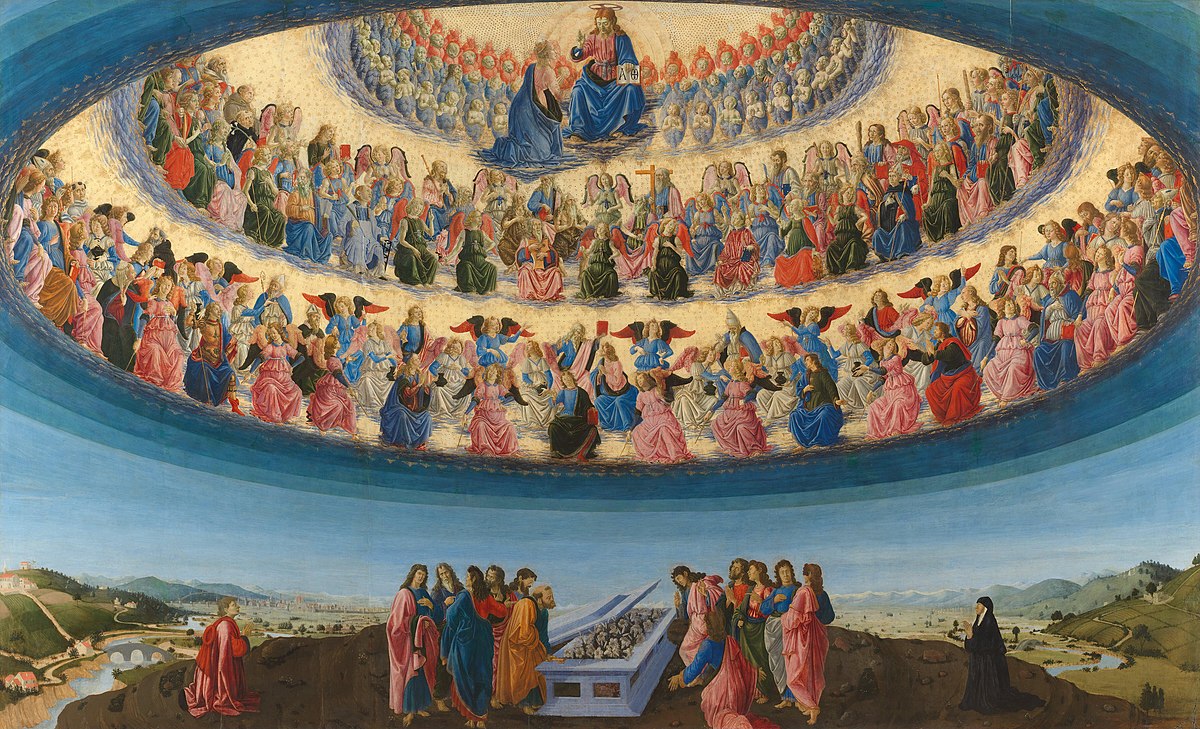Gonna repost this I saved
The meme depicts artist renderings of certain celestial beings; specifically, imagery taken from tradition and the first few chapters of Ezekiel. In the versions of the meme I've seen, there are ophanim (wheels, typically studded with eyes), cherubim (living creatures, multi-headed and animalistic), seraphim (six wings, many eyes). You can decide for yourself how 'accurate' an artist's representation of the descriptions are after reading the first few chapters of Ezekiel.
Note though, none of these celestial beings are called 'angels' (malakim). Malakim means 'messengers.' It is something of a job title. 'Angels,' properly so called, typically appear human: there are the 'men' who visit Abraham in Genesis 18, but two of them are called 'angels'/malakim in the next chapter. There are also the 'men' who destroy Jerusalem with fire from the altar in Ezekiel's visions, the human-like messenger who interprets Daniel's vision, and the messenger(s) of Yahweh who appears to Gideon and to Samson's parents in Judges.
Why then does the meme call other celestial beings angels if they have a title other than malakim? The trend began with the translation of the Septuagint and gained popularity with pseudo-Dionysios' The Celestial Hierarchy. The Greek word used to translate malakim is άγγελος/aggelos. This title also means 'messenger.' P-Dionysios argued that it is proper to call all obedient celestial beings who serve God 'messenger' because they pass on messages and grace from God to the lower hierarchies. Thus, even those celestial beings closest to the throne—e.g., cherubim, seraphim—are messengers to the hierarchy below them, while the next hierarchy passes the message on down the line, and so on until you reach the lowest level: angels, properly so called.
So, is the meme of "biblically accurate angels" accurate? Only if you follow a Dionysian perspective that all obedient celestial beings are messengers. If you're looking for a 'biblically accurate' malak/aggelos, take a look at the nearest human. In the Bible, 'angels' are often mistaken for humans at first.








 … you think they do?
… you think they do?

